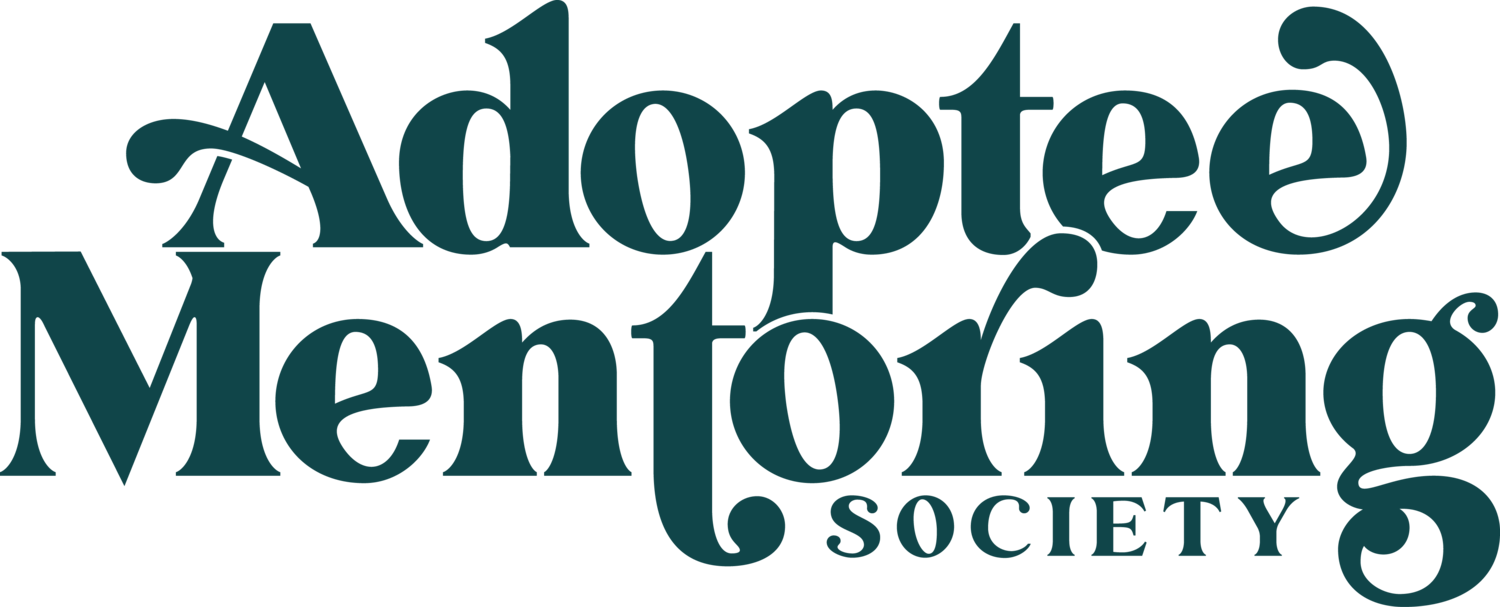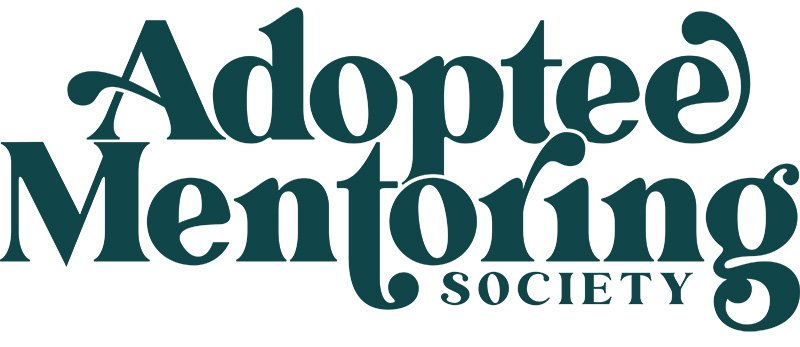Real Conversations, Real Impact: How Mentor Coaching Benefits Mentors & Mentees
By amanda paul, Chief Operating Officer
At the Adoptee Mentoring Society (AMS), we believe in the power of mentorship to build community and transform adoptees’ mental, emotional, and social health. In their first three months of offering sessions, our new mentor team has already facilitated 16 Adoptee Lounges and 35 one-on-one mentoring sessions!
Throughout these last three months, our mentors have demonstrated incredible dedication to our mentee community throughout their onboarding–a rigorous training process that requires deep self-reflection and a growth mindset. Mentoring is a big responsibility. AMS takes ongoing mentor development seriously, and that includes sharing our processes transparently with our community. We’re delighted to shed some light on some of the ways we work to support our mentors.
How We Support Our Mentors
Our mentors bring their own inherent gifts to this role–compassion, curiosity, and humor, just to name a few–in addition to years of lived experience as adopted people. Building on their existing skill sets, mentors receive continual coaching and opportunities to refine their mentoring practice.
Some of these opportunities include:
Feedback on Past Sessions: Recorded mentoring sessions are reviewed by AMS’s training team, and mentors receive positive and constructive feedback that help them identify areas for growth.
Monthly Reflective Consulting Groups: Mentors (including AMS’s Executive Director) meet monthly with a licensed therapist to process emotions, challenges, and breakthroughs that come up during mentoring sessions.
Racial Caucus Groups: Mentors meet regularly with a professional racial caucus group facilitator to support their ability to effectively lead groups and mentor adoptees in cross-racial relationships.
Coaching Sessions: During their onboarding and throughout the year, mentors have the opportunity to practice their skills with real mentees in a supervised environment where they receive real-time feedback.
Providing this high level of support for our mentors prepares them to offer a higher level of care for our mentees.
How Coaching Sessions Benefit Mentors (And Mentees!)
The mentor coaching sessions aren’t just practice–they’re real conversations with real impact. AMS Coach, Bonni Goodwin, an Assistant Professor at the University of Oklahoma published new research that highlights the importance of simulation-based learning. This method significantly improves confidence, self-efficacy, and skill competency.
For mentors, these sessions offer:
Space to practice the skills and tools developed during their training, in real life scenarios with AMS community members.
A safe space to make–and correct–mistakes. Mentoring is relational work. Volunteer mentees consent to participating in this practice space with the understanding that our mentors will sometimes misunderstand or mispeak and deserve the opportunity to learn from and be accountable to those moments.
An opportunity to receive and apply caring, constructive feedback graciously and effectively.
Time to build rapport and relationships with our mentee community.
A library of recordings to continually learn from throughout their time as mentors. All coaching sessions are recorded, available only to active mentors and AMS’s training team.
And for mentees, coaching sessions offer:
A chance to try out mentoring in a supportive setting. No prior mentorship or coaching experience is required to join as a volunteer mentee, and whether you join as a 1:1 mentee or participant in The Adoptee Lounge is up to you!
The opportunity to be a part of shaping AMS’s mentoring programs. The feedback that you share with mentors not only impacts them but future mentees as well.
A voucher for one free Adoptee Lounge session–a small token of our appreciation for your time and energy.
Volunteer mentees are invaluable to our program, helping our mentors prepare to support our adoptee community in a way that no one else can.
What Does a Coaching Session Look Like?
During each two-hour Zoom coaching session, two mentors take turns practicing facilitating either a 1:1 or The Adoptee Lounge. In addition to our mentors, several members of AMS’s training team and up to six mentees attend each coaching session.
Here’s a peek into how these sessions flow:
Brief introductions and a check-in question
1:1 practice session begins
The practicing mentor, assigned mentee, and our AMS trainers are the only on-screen participants.
All other participants are off-screen, observing the session and noting any feedback for the mentor.
The mentor and mentee find their own flow of conversation, and AMS’s trainers may interrupt them to offer the mentor feedback in real time. For example; “That was a great question that you asked the mentee, and I’d love for you to try responding with a reflection instead and see how that lands,” or “The conversation has been really heavy, perhaps some levity might help here.”
1:1 practice session ends
The full group rejoins onscreen to debrief together.
The mentor and mentee are invited to share how the session felt for them, and then the observers in the group are welcome to share any feedback they may have for the mentor. While general comments like, "You did great!" might feel supportive, we love feedback that’s specific, constructive, and kind. Noting what the mentor might try differently next time, what they did or said that felt particularly supportive (or potentially unsupportive), or how the session felt for you as an observing mentee are all helpful pieces of information that support each mentor’s growth.
Switch mentors/mentees and repeat the process
The next mentor practices facilitating The Adoptee Lounge with the assigned mentees, followed by a group debrief, and we end the meeting with a closing reflection question.
This community-driven, growth-oriented approach helps to ensure that our mentors are always refining their skills—so that our mentees get the best support possible.
Ready to Help Train Our Mentors?
If you’re an adopted person (age 12 or older) and are interested in shaping adoptee-centric support for adoptees, we’d love to have you join a coaching session as a volunteer mentee.
Together, we’re growing a community where no adopted person has to navigate adoption alone.



